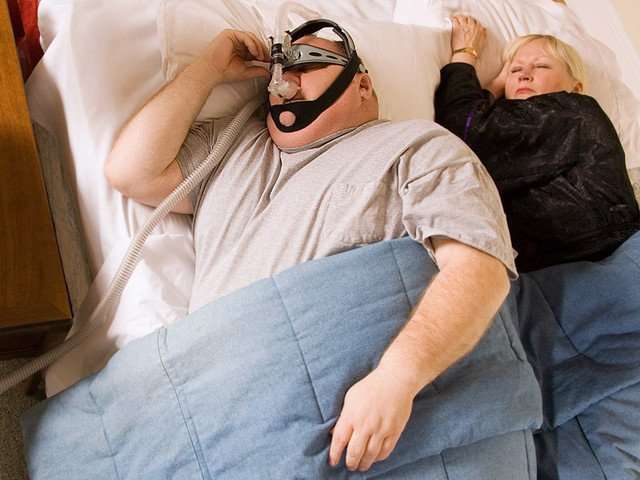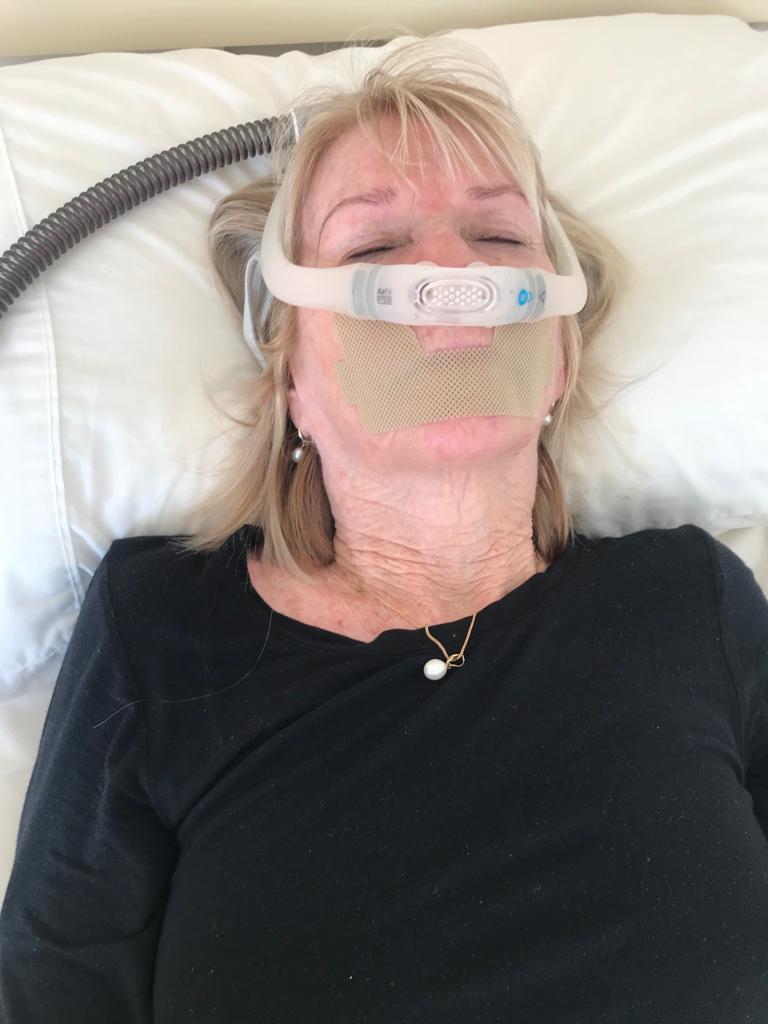Dry mouth with CPAP:
CPAP, or continuous positive airway pressure, is a standard treatment for sleep apnea characterized by interrupted breathing during sleep. CPAP machines deliver a constant flow of pressurized air through a mask, helping to keep the airways open and allowing for uninterrupted breathing throughout the night.
Understanding how CPAP works is essential to understanding why dry mouth can occur as a side effect. When using a CPAP machine, the pressurized air can sometimes escape from the mouth instead of being directed into the airways. It can lead to decreased moisture in the mouth, resulting in dryness and discomfort.
It is important to note that everyone does not experience dry mouth with CPAP. The likelihood of experiencing dry mouth can depend on various factors, including the type of mask being used, the pressure setting on the machine, and individual differences in anatomy and sleep patterns.
In the following sections of this blog post, we will explore the different causes of dry mouth with CPAP and provide tips and remedies for alleviating this discomfort. We will also discuss the importance of maintaining hydration levels and provide strategies for preventing dry mouth while using CPAP. Understanding CPAP and its potential effects on the mouth will help you navigate and address the issue of dry mouth, ensuring a more comfortable and successful experience with your CPAP therapy.
Causes of dry mouth with CPAP:
Dry mouth with CPAP can have various causes, and understanding these causes can help find practical solutions. One common cause is mouth breathing during sleep. When using a CPAP machine, the pressurized air can escape from the mouth instead of being directed into the airways. It can lead to decreased moisture in the mouth, resulting in dryness. Another cause can be the type of mask being used. Some masks may not fit properly or have a good seal, allowing air to leak out from the mouth causing dryness.
Additionally, the pressure setting on the machine can play a role. Higher pressures may cause more air to escape from the mouth, leading to dry mouth symptoms. Lastly, individual differences in anatomy and sleep patterns can contribute to dry mouth. For example, if a person naturally breathes through their mouth or experiences dryness in their mouth during sleep, they may be more prone to dry mouth with CPAP. Identifying the underlying causes makes it easier to address the issue and find the right solutions to alleviate dry mouth discomfort.
Tips to alleviate dry mouth with CPAP:
If you’re experiencing dry mouth with your CPAP machine, don’t worry – there are several tips and tricks to alleviate this discomfort. Here are some practical suggestions to help you find relief:
1. Use a heated humidifier: Many CPAP machines have a heated humidifier option, adding moisture to the air you breathe. A heated humidifier can significantly reduce dry mouth symptoms by adding moisture to the pressurized air.
2. Adjust the mask: Ensure your cover fits properly and has a good seal. A mask that is too loose or doesn’t fit correctly can lead to air leaks, causing dry mouth. Consult your healthcare provider to find the right mask size and type.
3. Try a chin strap: Using a chin strap can help keep your mouth closed while you sleep, encouraging you to breathe through your nose instead of your mouth. It can prevent the escape of pressurized air and reduce dry mouth symptoms.
4. Consider a full-face mask: If you tend to breathe through your mouth during sleep, using a full-face mask may be a good option. Full-face masks cover the nose and mouth, ensuring the pressurized air is directed into the airways and not escaping from the mouth.
5. Stay hydrated: Drink plenty of water throughout the day to keep your body hydrated. Adequate hydration can help combat dry mouth and maintain saliva production, reducing discomfort while using your CPAP machine.
Remember, these tips may only work for some, as the effectiveness can vary depending on individual factors. If you continue to experience dry mouth despite trying these remedies, it’s essential to consult with your healthcare provider for further guidance. Don’t let dry mouth discourage you from using your CPAP machine – finding the right solution can help ensure a comfortable and successful sleep apnea therapy experience.
Products and remedies for dry mouth with CPAP:
One of the most effective ways to combat dry mouth with CPAP is by using specific products and remedies designed to relieve and promote moisture in the mouth. There are several options available that can help alleviate dry mouth symptoms and enhance your overall CPAP experience.
First, consider using a humidifier that is compatible with your CPAP machine. A heated humidifier can add moisture to the air you breathe, reducing the chances of experiencing dryness in the mouth. Many CPAP machines come with built-in humidifiers; if yours does not, you can purchase a separate humidifier that attaches to your machine.
Another product to consider is a moisturizing mouth gel or spray. These products are specifically formulated to provide relief for dry mouth. They work by coating the mouth and throat with a lubricating layer that can help combat dryness and provide immediate relief.
Additionally, a saline nasal spray before bedtime can help moisturize the nasal passages and reduce the likelihood of mouth breathing during sleep. By keeping your nasal passages moist, you can minimize the escape of pressurized air from your mouth.
It’s also worth exploring different types of CPAP masks to find the most comfortable and practical for you. Full-face masks covering the nose and mouth can benefit individuals who breathe through their mouth during sleep. These masks ensure the pressurized air is directed into the airways and not escaping from the mouth.
Lastly, stay hydrated throughout the day by drinking plenty of water. Good hydration promotes overall health and helps combat dry mouth symptoms. Aim to drink at least 8 cups (64 ounces) of water daily, and consider keeping a water bottle nearby throughout the day to encourage regular sips.
By incorporating these products and remedies into your CPAP routine, you can find relief from dry mouth and enjoy a more comfortable and successful sleep apnea therapy experience. Consult your healthcare provider for any questions or concerns about specific products or remedies.
By addressing and preventing dry mouth with CPAP, you can improve your overall CPAP experience, promote better adherence to therapy, and enjoy the benefits of uninterrupted breathing and restful sleep. Don’t let dry mouth deter you from achieving optimal sleep apnea treatment – take action to find relief and enhance your CPAP comfort and compliance.



